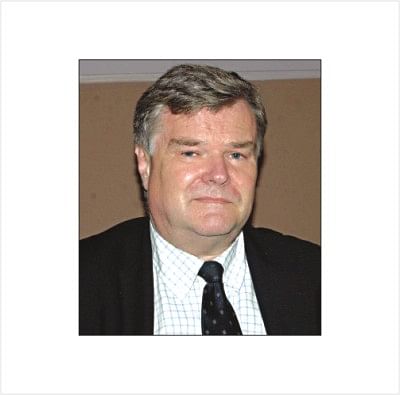Bangladesh needs to improve quality of education

Olav Seim, director of the EFA International Coordination Team, Unesco.Photo: STAR
Bangladesh has made significant progress in achieving some goals of Education for All but it needs to focus on the quality of education and early childhood development, said Olav Seim, director of the EFA International Coordination Team, Unesco.
"The country has managed to increase enrolment rate at primary level to almost 90 percent which is a big achievement," he said in an interview with The Daily Star Tuesday on the sidelines of an international meeting on education. "It also did well in ensuring gender parity, but it needs to focus on quality."
Organised by Unesco in collaboration with Campaign for Popular Education (Campe), the three-day conference titled 'Fifth Meeting of Unesco's Collective Consultation of NGOs on Education for All (CCNGO/EFA)' began at a city hotel on Monday.
Seim said though many countries have made significant progress in achieving some of the EFA goals, but they still need to go a long way.
Lack of funding is a major problem, he said calling on the governments and donors to invest more in education sector in order to achieve the goals of Education for All -- a global movement led by the Unesco aiming to meet the learning needs of all children, youth and adults by 2015.
"Many countries have invested substantial amount to get more children into schools. But we have many other countries, particularly African and Sub Saharan ones, where we see very little progress in enrolment," Seim said.
Out of the EFA goals it seems progress in enrolment and gender parity at the primary level, but unfortunately, on the other four goals, there has not been the same progress, he said, adding, "Most countries are lagging behind in achieving the four goals."
The four other goals are expanding early childhood care and education, promoting learning and life skills for young people and adults, increasing adult literacy by 50 percent and improving the quality of education.
Mentioning that Norway is the third in terms of dropping out in the secondary schools, he said a lot of dropouts are happening in many countries, which is definitely a big problem.
The Unesco executive said the importance of education is clear as it contributes to economic growth and sustainable development of a country.
He said all education ministers are committed to giving their best to improve the sector, but the problem is that they are not in control of resources.
"The ministry of finance needs to provide necessary funding for the sector," he said adding, the donors also need to deliver on their earlier commitments.
Regarding the role of NGOs and civil society in achieving the goals, he said the civil society has the role of watchdog in holding the government accountable.
They are playing a vital role and some NGOs are also involved in running schools and providing education opportunities, Seim added.
Regarding Unesco's role in achieving the goals, he said that they are working for policy advocacy for government to spend more money on education and also advocate for the donors to deliver on their earlier commitments, but it is the duty of the governments to develop the education sector.
"We are working closely with Unicef and World Bank to mobilise more resources for education. But in general, it is the countries themselves who are main responsible for the education sector," he said.
Regarding improving quality of education, Seim said Unesco can provide some advice on curricula, teaching method and how to monitor the progress in this sector.

 For all latest news, follow The Daily Star's Google News channel.
For all latest news, follow The Daily Star's Google News channel. 



Comments